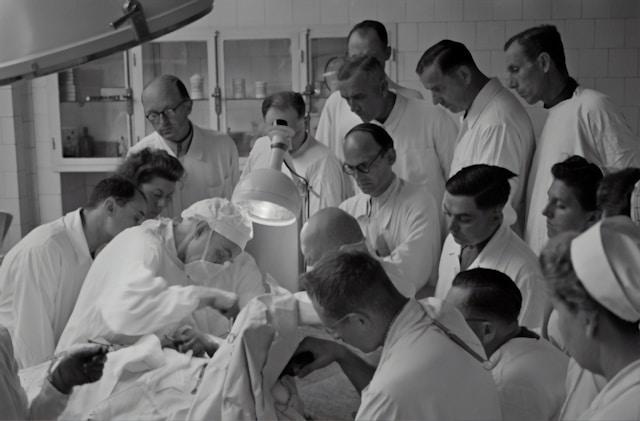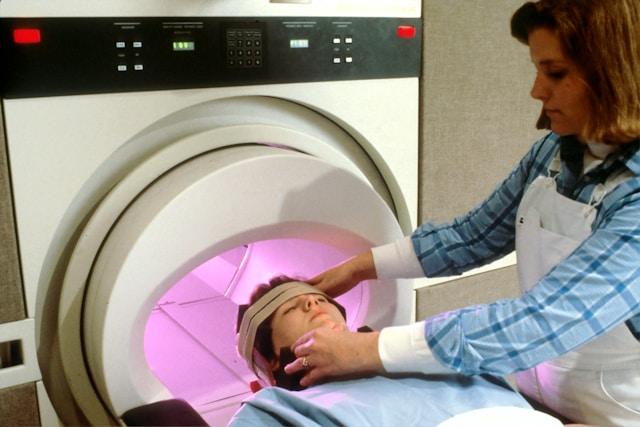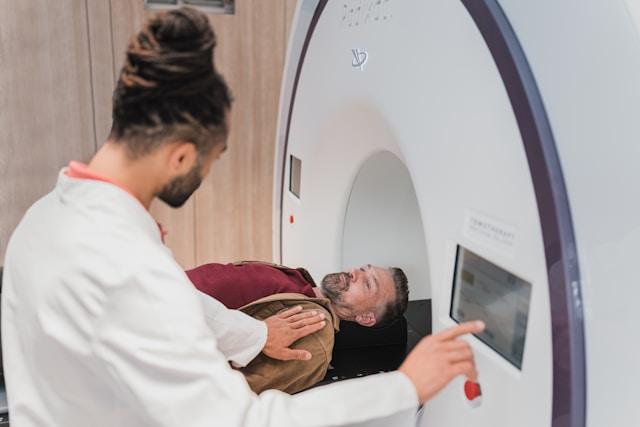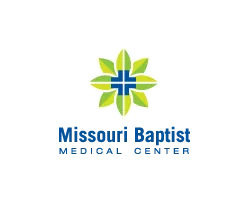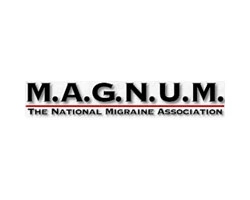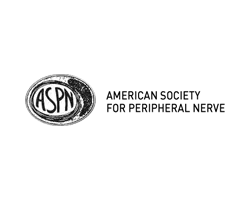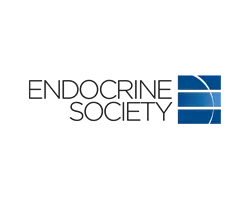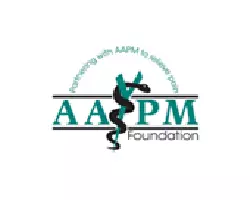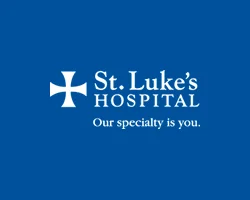-
-
What are the common signs of workplace injuries that employees should recognize?
-
How should employees report workplace injuries to their employers?
-
When should an employee seek emergency treatment for a work-related injury?
-
What role do employers play in the workers’ compensation process?
-
How important is follow-up medical care after a workplace injury?
-
What steps can employees take to handle work absence due to a work-related injury?
-
How can victims of workplace crimes navigate the process of seeking compensation and support?
-
What steps should employees follow when navigating the workers’ compensation process?
-
Suffering a work-related injury can be overwhelming, leaving you unsure of your next steps. Understanding the contrast between taking immediate action and delaying seeking help is crucial. Promptly reporting your injury to your employer and seeking medical attention can significantly impact your recovery process. By contrast, delaying these actions may jeopardize your chances of receiving proper compensation and care. Knowing what to do in the event of a work-related injury is vital to protect both your health and your rights.
Navigating workers’ comp injuries can be complex, but being informed and proactive can make a significant difference in the outcome. In this post, we will explore essential steps to take after sustaining a work-related injury, ensuring you are well-equipped to handle the situation effectively.
Key Takeaways
-
Recognize the Signs: Be vigilant in identifying workplace injuries early to prevent escalation.
-
Report Promptly: Inform your employer immediately when an injury occurs to initiate the necessary procedures.
-
Prioritize Emergency Care: Seek immediate medical attention for severe injuries to ensure timely treatment.
-
Engage with Employers: Understand your employer’s responsibilities and expectations regarding workplace injuries.
-
Ensure Follow-up Care: Stay committed to post-injury medical appointments for proper recovery and documentation.
-
Manage Absences Effectively: Communicate transparently with your employer about work limitations during recovery periods.
-
Address Non-Employer Fault: Seek legal advice if the injury involves parties outside the workplace for appropriate recourse.
-
Support for Crime Victims: Access resources and support if you are a victim of a workplace crime for holistic recovery.
-
Navigate Workers’ Comp: Familiarize yourself with the workers’ compensation process to secure your rights and benefits effectively.
Recognizing Workplace Injuries
Types of Injuries
Identifying common workplace injuries is crucial for ensuring a safe work environment. From falls and muscle strains to more severe incidents like fractures or burns, being aware of these risks is essential. Understanding the severity of each injury type can help in taking appropriate action promptly.
Being able to recognize the impact of various injuries on your work is key. For instance, while a minor muscle strain may require rest and simple treatments, a fracture might lead to extended time off work and medical intervention. By understanding these differences, you can better assess the necessary steps to take after an injury occurs.
Immediate Symptoms
Recognizing signs of immediate injury, such as sharp pain, swelling, or difficulty moving a body part, is crucial. Responding promptly to these sudden symptoms can prevent further complications and speed up the recovery process. Whether it’s reporting the incident to your supervisor or seeking immediate medical attention, quick action is vital.
Understanding the urgency of addressing immediate symptoms can make a significant difference in the outcome of an injury. Ignoring initial signs could exacerbate the condition and lead to longer recovery times. By being proactive and seeking help when needed, you prioritize your well-being and overall health.
Long-term Effects
Learning about potential long-term consequences of workplace injuries is essential for making informed decisions about your health. Some injuries may have lasting effects that impact your ability to perform certain tasks or even lead to chronic conditions. Understanding how injuries can affect your health in the long run empowers you to take preventive measures.
Preparing for managing long-term effects post-injury involves seeking proper medical care and following recommended treatment plans. This may include physical therapy, ongoing monitoring of your condition, or modifications in your work environment to accommodate any limitations caused by the injury. By staying proactive and engaged in your recovery process, you can mitigate long-term effects.
Reporting to Employer
Steps to Report
Notify your supervisor promptly to inform them about the injury you sustained during your job duties. Follow the correct procedure outlined by your employer for reporting workplace injuries. Timely reporting is crucial to ensure that necessary actions are taken promptly.
Documentation Needed
Understand the documentation required, such as incident reports or medical records, when reporting work-related injuries. Gather all the necessary paperwork, including witness statements if applicable, to support your claim effectively. Keep all relevant documents organized and easily accessible for future reference.
Legal Deadlines
Be mindful of the time limits set for reporting workplace injuries to your employer or workers’ compensation board. Understanding and meeting these legal deadlines is essential to avoid potential complications in receiving benefits. Avoid any delays in filing claims as missing legal deadlines can impact your eligibility for compensation.
Seeking Emergency Treatment
When to Seek Help
Knowing when to seek medical assistance is crucial for timely treatment of work-related injuries. If you experience severe pain, difficulty breathing, or excessive bleeding, do not hesitate to seek immediate medical attention. Timely intervention can prevent complications and promote faster recovery.
Understanding the importance of receiving emergency care promptly is essential in handling workplace injuries effectively. Prompt treatment can prevent further damage and ensure a swift recovery process. Delaying seeking help can exacerbate the injury’s severity and prolong the healing time.
In case of emergencies such as fractures, deep cuts, or head injuries, it is imperative to seek help immediately. Contact emergency services or visit the nearest emergency room for prompt evaluation and treatment. Your well-being is a top priority, so never ignore signs that indicate the need for urgent medical care.
Finding Care Providers
Locating suitable healthcare providers for your injury is vital in ensuring proper treatment and rehabilitation. Research nearby clinics, hospitals, or specialists that cater to work-related injuries to receive specialized care. Consider facilities with experience in treating similar cases for optimal outcomes.
Ensure that you receive treatment from authorized medical professionals who specialize in treating work-related injuries. Authorized healthcare providers have the expertise and training to address occupational health issues effectively. Trusting qualified professionals ensures you receive appropriate care tailored to your injury.
Before seeking treatment, verify the credentials of care providers to guarantee their qualifications and expertise. Check if they are licensed practitioners with experience in managing workplace injuries. Confirming their credentials instills confidence in their ability to provide quality care and support throughout your recovery journey.
Employer’s Role and Expectations
Providing Information
When injured at work, share accurate details about your injury promptly with your employer. Ensure to provide necessary information for filing a workers’ compensation claim. Cooperate with your employer by providing any injury-related details they may require.
Choosing a Doctor
Concerns Addressed
-
Address any doubts or concerns regarding workers’ compensation.
-
Seek clarification on benefits and procedures.
-
Resolve any issues related to your injury or claim.
Workers’ Rights
Understand your rights as an injured worker, including the right to medical treatment and wage replacement benefits. Know what benefits you are entitled to, such as coverage for medical expenses and disability payments. Be informed about your legal protections in case of workplace injuries, including the right to file a claim without fear of retaliation.
Workers’ compensation laws vary by state, so it’s crucial to familiarize yourself with the specific regulations in your area. In case of disputes or disagreements with your employer or the insurance company, you have the right to seek legal counsel. Remember that timely reporting of your injury is essential for ensuring you receive the benefits you are entitled to.
Follow-up Medical Care
Scheduled Visits
Attend all scheduled medical appointments to ensure timely assessment of your workers comp injuries. Compliance with these visits is crucial for monitoring your recovery progress accurately. By following through on these appointments, you allow healthcare providers to track any changes in your condition promptly. Missing appointments can delay your recovery timeline and potentially affect the outcome of your injury claim.
-
Ensure regular check-ups for monitoring your recovery progress are essential for documenting the improvement in your condition over time.
-
Follow up on treatment plans as advised by healthcare providers, including medication schedules and therapy sessions.
-
Attending these appointments also demonstrates your commitment to your recovery and compliance with the recommended treatment.
Therapy and Rehabilitation
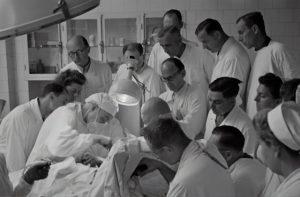
Participate actively in therapy sessions prescribed by healthcare professionals to expedite your recovery process. These sessions are designed to help you regain functionality and mobility after sustaining work-related injuries. Engaging fully in these sessions can significantly impact the speed and quality of your rehabilitation.
-
Engage in rehabilitation programs tailored to address specific aspects of your injury for a comprehensive recovery plan.
-
Following through with recommended exercises at home between therapy sessions is crucial for maintaining progress.
-
Your dedication to therapy and rehabilitation not only accelerates your recovery but also strengthens your injury claim by demonstrating proactive efforts towards regaining full health.
Handling Work Absence
Communicating with Employer
Maintain open communication with your employer to ensure a smooth process. Update them regularly on your recovery progress to keep them informed. Be proactive in informing your employer about any changes in your medical condition, fostering transparency.
Temporary Disability Benefits
Understand the eligibility criteria for temporary disability benefits provided by your employer or state. Know the necessary steps to apply for these benefits promptly. During your recovery period, you will receive temporary wage replacement to support you financially.
Non-Employer Fault Situations
Third-party Claims
In non-employer fault situations, employees might have the option to pursue third-party claims. This avenue allows them to seek additional compensation beyond workers’ compensation benefits. Seeking legal advice is crucial to navigate the complexities of third-party liability claims effectively. Understanding the process of filing these claims alongside workers’ compensation can ensure a smoother legal journey.
Legal Considerations When dealing with workers’ compensation, it’s essential to be aware of the legal implications that come with it. Knowing your rights and obligations under workers‘ compensation laws is vital for a fair resolution. In cases involving non-employer fault, seeking legal counsel becomes even more critical, especially when facing complex legal matters related to your claim.
Victims of Workplace Crimes
Reporting Crimes
Victims should report any criminal activities linked to their workplace injury promptly. Seek help from law enforcement if necessary to ensure justice is served. Legal actions must be taken against perpetrators of workplace crimes.
Support Services
Injured workers can access support services tailored to their needs. Seeking help from counseling services can aid in coping with trauma effectively. Utilize available resources to promote emotional and mental well-being.
Navigating Workers’ Comp Process
Filing a Claim
After reporting your injury at work, make sure to file a claim promptly to initiate the workers’ compensation process. Follow the specific procedure provided by your employer or HR department for submitting a claim. Include all necessary information, such as details of the incident and medical reports, in your claim form.
Understanding Benefits
It is crucial to familiarize yourself with the benefits covered by workers’ compensation insurance. Understand the scope and limitations of these benefits to manage your expectations effectively. Educate yourself about how to receive and utilize the benefits you are entitled to under the program.
Final Remarks
You now have a clear understanding of how to navigate workplace injuries effectively. Remember, prompt reporting, seeking medical attention, and following up on treatment are crucial steps. Your employer plays a significant role in supporting you through this process, ensuring your well-being and a smooth workers’ compensation claim.
In case of any uncertainties or difficulties, don’t hesitate to seek guidance from legal professionals specializing in workers’ comp cases. Your health and rights are paramount, so take proactive steps to address any workplace injury promptly and thoroughly. Stay informed, communicate openly with your employer, and prioritize your recovery above all else.
Frequently Asked Questions
What are the common signs of workplace injuries that employees should recognize, especially injured workers?
Recognizing Workplace Injuries is crucial. Look out for symptoms like pain, swelling, numbness, or limited mobility. Any discomfort after a work-related incident should be taken seriously.
How should employees report workplace injuries to their employers?
Reporting to Employer promptly is vital. Inform your supervisor immediately, preferably in writing. Provide details of the injury, when and where it occurred, and any witnesses present.
When should an injured worker seek emergency treatment for a work-related injury?
Seeking Emergency Treatment is necessary for severe injuries or if there’s excessive bleeding, loss of consciousness, or difficulty breathing. Don’t delay seeking medical help in such cases.
What role do employers, claim managers, and injured employees play in the workers’ compensation process?
Employer’s Role and Expectations include providing necessary forms, assisting with medical care coordination, and not retaliating against the employee for filing a claim. Employers must cooperate throughout the process.
How important is follow-up medical care for an injured employee after a workplace injury?
Follow-up Medical Care ensures proper recovery and documentation for workers’ comp claims. Attend all medical appointments, follow treatment plans diligently, and keep records of all related expenses and communications.
What steps can employees self state take to handle work absence due to a work-related injury?
Handling Work Absence involves informing your employer promptly about your inability to work due to the injury. Follow company policies for reporting absences and provide regular updates on your condition.
What should employees in a state of self do if they are involved in a workplace accident caused by someone other than their employer?
In Non-Employer Fault Situations, consider legal options beyond workers’ comp. Consult with a personal injury attorney to explore potential third-party liability claims against responsible parties for additional compensation.
How can victims of workplace crimes navigate the process of seeking compensation and support?
Victims of Workplace Crimes should report the incident to law enforcement immediately. They may also be eligible for workers’ comp benefits and additional assistance through victim compensation programs or legal avenues.
What steps should employees follow when navigating the workers’ compensation process?
Navigating Workers’ Comp Process requires thorough documentation of the injury, timely reporting, following medical advice, cooperating with investigations, attending hearings if needed, and seeking legal counsel if facing challenges in receiving rightful benefits.

